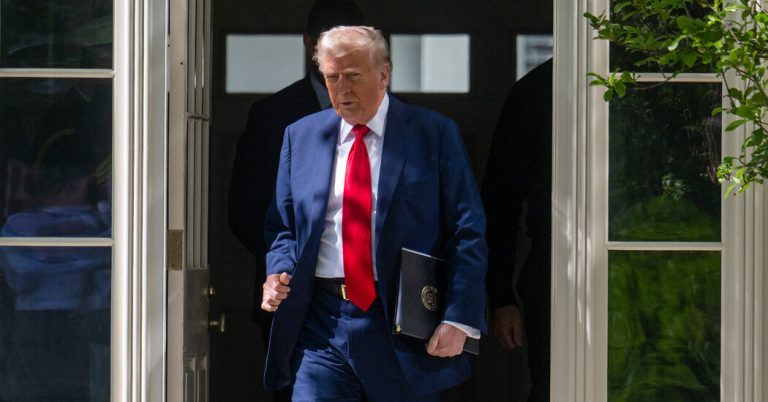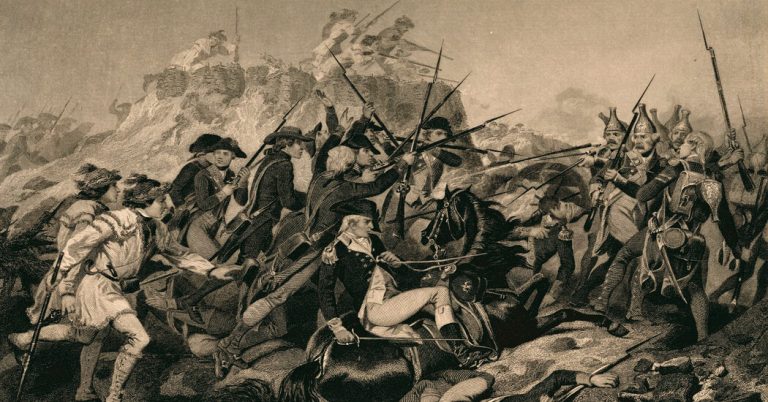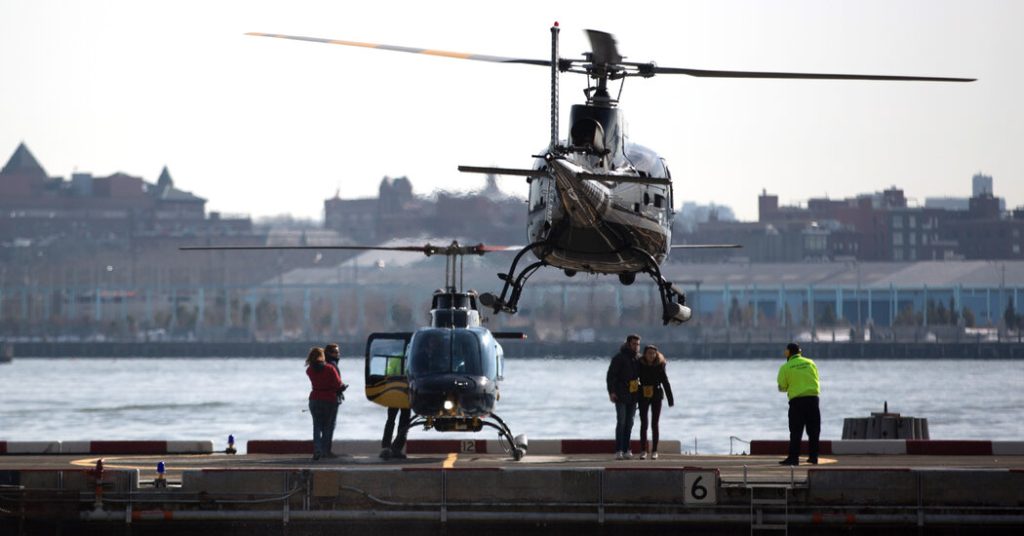In 10 weeks, Wisconsin will hold an election that carries bigger policy stakes than any other contest in America in 2023.
The April race, for a seat on the state’s evenly divided Supreme Court, will determine the fate of abortion rights, gerrymandered legislative maps and the governor’s appointment powers — and perhaps even the state’s 2024 presidential election if the outcome is again contested.
The court’s importance stems from Wisconsin’s deadlocked state government. Since 2019, Gov. Tony Evers, a Democrat, has faced off against a Republican-controlled Legislature with near-supermajority control thanks to one of the country’s most aggressive partisan gerrymanders, itself approved last year by the Wisconsin justices.
Wisconsin’s Supreme Court has been left to arbitrate a host of thorny issues in the state, and has nearly always sided with Republicans. But now, with a conservative justice retiring, liberals hope to reverse many of those decisions by taking control of the open seat and its 10-year term.
“If you change control of the Supreme Court from relatively conservative to fairly liberal, that will be a big, big change and that would last for quite a while,” said David T. Prosser Jr., a conservative former justice who retired from the court in 2016.
The contest will almost certainly shatter spending records for a judicial election in any state, and could even double the current most expensive race. Wisconsinites are set to be inundated by a barrage of advertising, turning a typically sleepy spring election into the latest marker in the state’s nonstop political season. The seat is nonpartisan in name only, with officials from both parties lining up behind chosen candidates.
Indeed, the clash for the court is striking because of how nakedly political it is.
While past state judicial candidates and United States Supreme Court nominees have largely avoided weighing in on specific issues — instead pitching opaque judicial philosophies and counting on voters or senators to read between the lines — some of the Wisconsin contenders are making all but explicit arguments for how they would rule on topics that are likely to come before the court.
Janet Protasiewicz, a liberal county judge from a Milwaukee suburb, is leading the charge on both fund-raising and the new approach to judicial campaigning, shedding the pretense that she does not hold firm positions on the hottest-button issues. She turned heads this month at a candidate forum when she declared the state’s gerrymandered legislative maps “rigged.”
In an interview last week, Judge Protasiewicz argued that abortion should be “a woman’s right to choose”; said that Gov. Scott Walker’s 2011 law effectively ending collective bargaining rights for most public employees was unconstitutional; and predicted that, if she won, the court would take up a case seeking to invalidate the Republican-drawn state legislative and congressional maps put in place last year.
“Obviously, if we have a four-to-three majority, it is highly likely that we would be revisiting the maps,” she said.
The other liberal candidate, Judge Everett Mitchell of Dane County, which includes Madison, the state capital, said in an interview that “the map lines are not fair.”
Both candidates have also expressed full-throated support for the right to an abortion, which became illegal last summer under a law that was enacted in 1849 but that is being challenged by the state’s Democratic attorney general in a case likely to come before the court this year.
Their declarations signify how the race is transmogrifying into a statewide election like any other in Wisconsin, a perpetual political battleground. Like November’s contests for governor, state attorney general and the Senate, the court election is set to be dominated by a focus on abortion rights (for Democrats) and crime (for Republicans).
“We’re still on the November hangover where the top two issues were crime and abortion,” said Mark Graul, a Republican political operative in the state who is a volunteer for Jennifer R. Dorow, a conservative Waukesha County judge in the Supreme Court race. Judge Dorow presided over the trial last fall of a man convicted of killing six people by driving through a 2021 Christmas parade.
Judge Dorow and another conservative, Dan Kelly, a former Wisconsin Supreme Court justice who lost a 2020 election to retain his seat, will compete against the two liberals in an officially nonpartisan Feb. 21 primary to replace Justice Patience D. Roggensack, who is retiring.
The top two will advance to an April 4 general election, with the winner joining a court that is otherwise split between three conservative and three liberal justices.
In narrowly divided Wisconsin, a one-seat edge is all the majority needs to change the state’s politics.
In recent years, in addition to approving the Republican-drawn maps, the court has ruled that most drop boxes for absentee ballots are illegal; struck down Mr. Evers’s pandemic mitigation efforts; stripped regulatory powers from the state schools superintendent, a Democrat; allowed political appointees of Mr. Evers’s Republican predecessor to remain in office long past the expiration of their terms; and required some public schools to pay for busing for parochial schools.
Many of those cases, which Democrats hope to roll back, were brought to the court by the Wisconsin Institute for Law and Liberty, a think tank and legal organization that has served as the leading edge of the state’s conservative movement. The group’s founder, Rick M. Esenberg, said the court’s role ought to be upholding laws precisely as legislators have written them — not proposing major changes to them.
“Having control of the judiciary shouldn’t mean that you can make new policy,” Mr. Esenberg said. “Some judicial candidates have spoken as if that’s exactly what’s at stake. And for them, it may well be.”
The conservative candidates, Justice Kelly and Judge Dorow, have been less forthright about how they would rule, but both have left ample clues for voters. Justice Kelly last year participated in an “election integrity” tour sponsored by the Republican Party of Wisconsin. Judge Dorow, who was so well known in the Milwaukee suburbs that people dressed as her last Halloween, said in a 2016 legal questionnaire that the worst U.S. Supreme Court decision was Lawrence v. Texas, the 2003 decision that struck down anti-sodomy laws.
Both have ties to former President Donald J. Trump. In 2020, Mr. Trump endorsed Justice Kelly and praised him at a Milwaukee rally. Judge Dorow’s husband, Brian Dorow, was a security official for Trump campaign events in Wisconsin. Neither Justice Kelly nor Judge Dorow agreed to be interviewed.
The race has already broken state fund-raising records for a judicial race. Judge Protasiewicz — whose campaign on Tuesday released a cheeky video teaching Wisconsinites how to say her name: pro-tuh-SAY-witz — raised $924,000 last year, more than any Wisconsin Supreme Court candidate ever in the year before an election. Judge Dorow and Justice Kelly each raised about one-third as much, while Judge Mitchell collected $115,000.
Far more money will flow in from outside groups and the state’s political parties, which have no limits on what they may receive and spend. Both parties are expected to direct tens of millions of dollars to their favored general election candidates.
Justice Kelly has the support of the billionaire Uihlein family, whose political action committee pledged last year to spend millions of dollars on his behalf. So far, the Uihleins’ contributions have amounted to just $40,000 — a pair of maximum individual contributions to his campaign. Last year the Uihlein-backed super PAC spent $28 million in Wisconsin’s Senate race; Richard and Liz Uihlein contributed an additional $2.8 million to the state Republican Party.
Dan Curry, a spokesman for Fair Courts America, the Uihleins’ political action committee, declined to answer questions about the family’s spending plans in the Supreme Court race.
The enormous stakes in the race so far have not been matched by commensurate public interest. Marquette University Law School, which conducts Wisconsin’s most respected political polls, has no plans to survey voters about the Supreme Court election, said Charles Franklin, the poll’s director.
Ben Wikler, the chairman of the Democratic Party of Wisconsin, said there was no question that spending on the race would eclipse the most expensive U.S. judicial race on record, a $15 million campaign in 2004 for the Illinois Supreme Court, according to the Brennan Center for Justice.
Mr. Wikler, who has spent recent weeks stumping for cash from major Democratic donors, said he hoped to make the race a national cause célèbre for liberals along the lines of Jon Ossoff’s 2017 House campaign in Georgia or the referendum on abortion rights in Kansas last year.
He cited the court’s 4-to-3 ruling in December 2020 that rejected the Trump campaign’s effort to invalidate 200,000 votes cast in Milwaukee County and Dane County — an argument that has resonated with top Democrats in Washington worried that a more conservative court could reach an opposite conclusion in the future.
“Wisconsin is extremely important for the presidency,” Senator Chuck Schumer of New York, the majority leader, said in an interview. “The Supreme Court is the firewall to an extreme Legislature that wants to curtail voting rights. And so this election is very important, not just for Wisconsin, but for the country.”
Eric H. Holder Jr., the former attorney general who leads the National Democratic Redistricting Committee, plans to campaign in the state after the primary.
For Wisconsin Democrats, the election is an opportunity to imagine a world in which they can exert some control over policy rather than simply trying to block Republican proposals, after a dozen years of playing defense.
In an interview last month, Mr. Evers called the race “a huge deal.” His election lawyer, Jeffrey A. Mandell, said that if a liberal candidate won, the governor would ask the State Supreme Court to take direct action to invalidate the state’s legislative maps on Aug. 2, the day after the new justice is seated.
Kelda Roys, a Democratic state senator, said the campaign would focus almost entirely on abortion rights — because the next justice will be in position to overturn the state’s ban and because, she argued, the midterms showed that it was a winning issue.
“It’s going to be abortion morning, noon and night,” Ms. Roys said, “even more than November was.”
Kitty Bennett contributed research.









